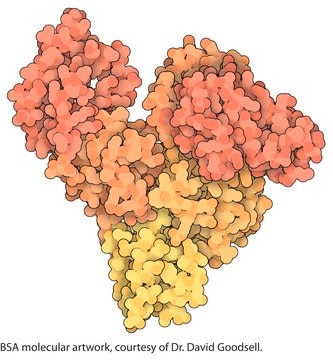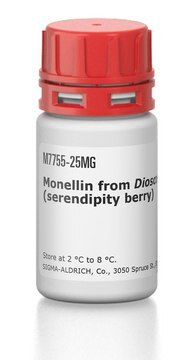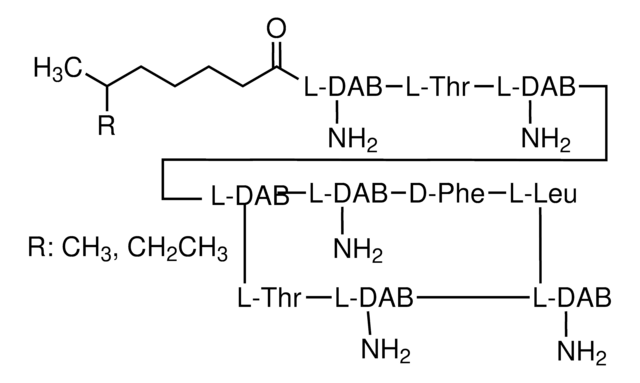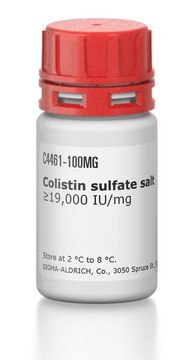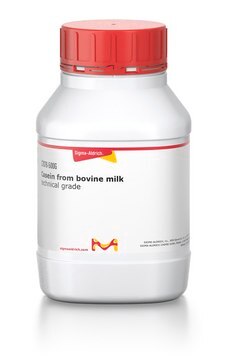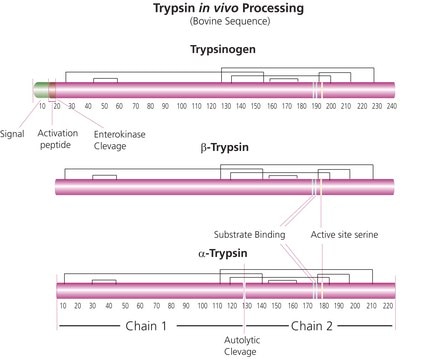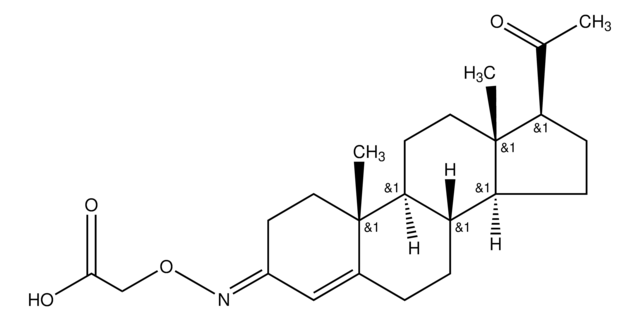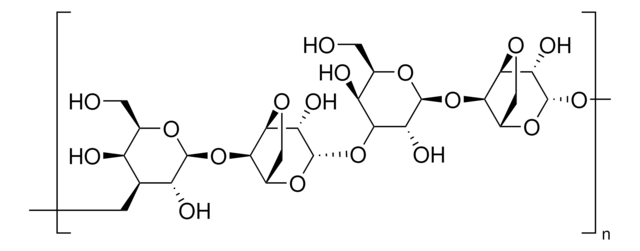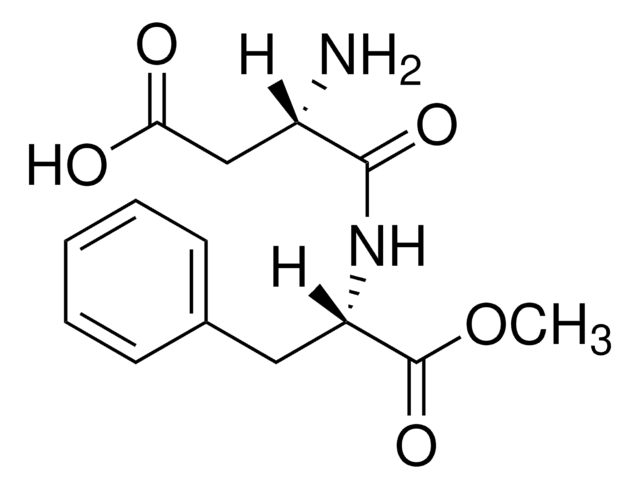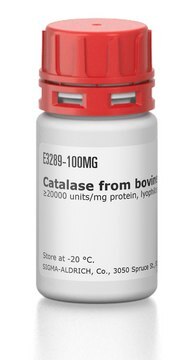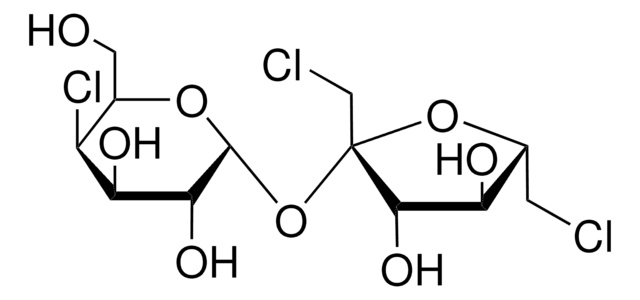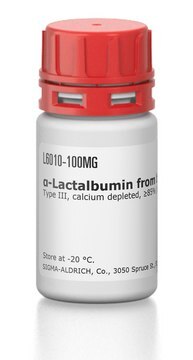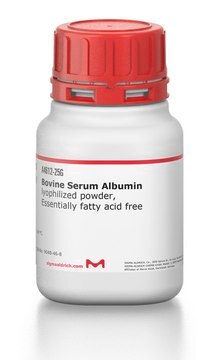Recommended Products
biological source
plant (Thaumatococcus daniellii)
Quality Level
form
powder
mol wt
~22 kDa
storage temp.
2-8°C
General description
Thaumatin is a super sweet protein extracted from the African plant katemfe, Thaumatococcus daniellii Benth. This non-toxic protein is a member of the broad family of pathogenesis-related proteins (group PR5). Thaumatin exists in five isoforms namely thaumatin I, II, III, a, and b.
Application
Thaumatin from Thaumatococcus daniellii has been used:
- as a positive control/standard to detect the amount of recombinant thaumatin in the milk of transgenic mice using western blot
- as a standard to compare its retention time with Vitis vinifera thaumatin-like proteins (VVTL1) occurring in free-run juice and determine the pathogenesis-related protein content in grape juices
- as a model protein to study its interaction with free and ligated decavanadate
Biochem/physiol Actions
Recently it was shown the over expression of the thaumatin gene from Thaumatococcus daniellii in tomatoes caused the fruit to have a sweeter taste, suggesting that thaumatin could be used to enhance the taste of various foods.
Thaumatin is a zero-calorie sweetener and flavor enhancer that finds its use in food industries. It has antifungal activity and elicits protective functions in plants. Thaumatin is useful in pharmaceutics as it is a constituent of special low-calorie diets.
Quality
A mixture of thaumatin I and thaumatin II with traces of other sweet proteins.
Storage Class
11 - Combustible Solids
wgk_germany
WGK 3
flash_point_f
Not applicable
flash_point_c
Not applicable
ppe
Eyeshields, Gloves, type N95 (US)
Certificates of Analysis (COA)
Search for Certificates of Analysis (COA) by entering the products Lot/Batch Number. Lot and Batch Numbers can be found on a product’s label following the words ‘Lot’ or ‘Batch’.
Already Own This Product?
Find documentation for the products that you have recently purchased in the Document Library.
Customers Also Viewed
Modification of tomato taste in transgenic plants carrying a thaumatin gene from Thaumatococcus daniellii Benth.
Bartoszewski, G.
Plant Breeding, 122, 347-351 (2003)
Tetsuya Masuda et al.
Journal of bioscience and bioengineering, 102(5), 375-389 (2006-12-26)
Most proteins are tasteless and flavorless, while some proteins elicit a sweet-taste response on the human palate. Six proteins, thaumatin, monellin, mabinlin, brazzein, egg lysozyme, and neoculin (previously considered as curculin) have been identified as sweet-tasting proteins. However, no common
E C Zemanek et al.
Critical reviews in food science and nutrition, 35(5), 455-466 (1995-09-01)
The thaumatins are a class of intensely sweet proteins isolated from the fruit of the tropical plant Thaumatococcus danielli. Thaumatin is approved for use in many countries and has application as both a flavor enhancer and a high-intensity sweetener. The
P A Temussi
Cellular and molecular life sciences : CMLS, 63(16), 1876-1888 (2006-07-01)
A few proteins, discovered mainly in tropical fruits, have a distinct sweet taste. These proteins have played an important role towards a molecular understanding of the mechanisms of taste. Owing to the huge difference in size, between most sweeteners and
Chae Un Kim et al.
Proceedings of the National Academy of Sciences of the United States of America, 106(12), 4596-4600 (2009-03-05)
Polymorphism of water has been extensively studied, but controversy still exists over the phase transition between high-density amorphous (HDA) and low-density amorphous (LDA) ice. We report the phase behavior of HDA ice inside high-pressure cryocooled protein crystals. Using X-ray diffraction
Our team of scientists has experience in all areas of research including Life Science, Material Science, Chemical Synthesis, Chromatography, Analytical and many others.
Contact Technical Service